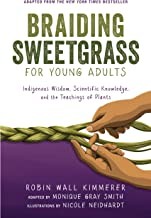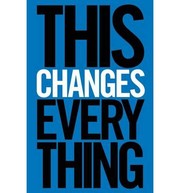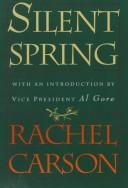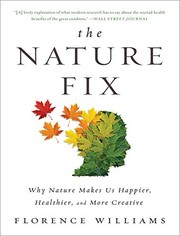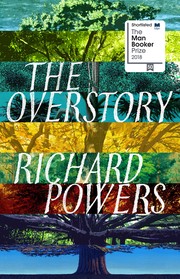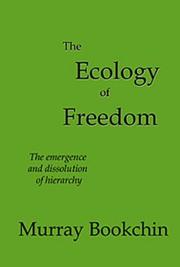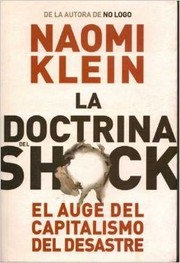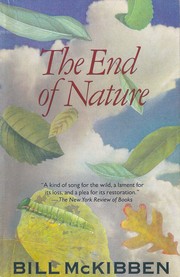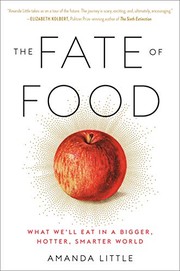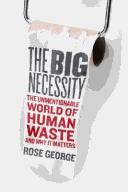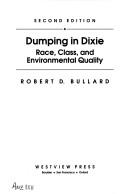Are you looking for powerful and thought-provoking books on environmental justice? Look no further! We’ve curated a list of the 20 best books about environmental justice that will inspire you, challenge your perspectives, and shed light on the urgent need for environmental equity. From eye-opening non-fiction to gripping fiction, these books will take you on a journey through the complexities of environmental justice issues. Get ready to expand your understanding and passion for this crucial topic with these impactful reads.
Contents
- 1 20 Best Books About Environmental Justice
- 2 The Water Will Come: Rising Seas, Sinking Cities, and the Remaking of the Civilized World
- 3 The Uninhabitable Earth: Life After Warming
- 4 Braiding Sweetgrass: Indigenous Wisdom, Scientific Knowledge, and the Teachings of Plants
- 5 The Sixth Extinction: An Unnatural History
- 6 This Changes Everything: Capitalism vs. The Climate
- 7 Silent Spring
- 8 The Nature Fix: Why Nature Makes Us Happier, Healthier, and More Creative
- 9 The Hidden Life of Trees: What They Feel, How They Communicate
- 10 The Great Derangement: Climate Change and the Unthinkable
- 11 The World Without Us
- 12 The Overstory
- 13 The Ecology of Freedom: The Emergence and Dissolution of Hierarchy
- 14 The Shock Doctrine: The Rise of Disaster Capitalism
- 15 The End of Nature
- 16 The Omnivore’s Dilemma: A Natural History of Four Meals
- 17 The Fate of Food: What We’ll Eat in a Bigger, Hotter, Smarter World
- 18 The Big Necessity: The Unmentionable World of Human Waste and Why It Matters
- 19 The Right to Be Cold: One Woman’s Story of Protecting Her Culture, the Arctic, and the Whole Planet
- 20 Toxic Communities: Environmental Racism, Industrial Pollution, and Residential Mobility
- 21 Dumping In Dixie: Race, Class, And Environmental Quality
- 22 Conclusion
- 23
- 24 Books on Starting School: 2024 Update of the Best Titles
- 25 Film Making Books: A Curated 2024 Updated List
- 26 20 Poland In Ww2 Best Books to Read – The 2024 Edition
20 Best Books About Environmental Justice
The Water Will Come: Rising Seas, Sinking Cities, and the Remaking of the Civilized World
by Jeff Goodell
The Water Will Come by Jeff Goodell is a gripping book about environmental justice that delves into the urgent issue of rising sea levels and its impact on coastal cities around the world. Goodell takes readers on a journey to various vulnerable locations, from Miami to Lagos, to explore the devastating effects of climate change and the threat it poses to our civilization. Through vivid storytelling and meticulous research, the author paints a stark picture of the impending crisis and the need for immediate action to address this global challenge. With a blend of scientific analysis and human stories, this book on environmental justice offers a compelling wake-up call to the pressing issue of sea level rise and the imperative for societal transformation in the face of this environmental threat.
The Uninhabitable Earth: Life After Warming
by David Wallace-Wells
The Uninhabitable Earth: Life After Warming is a chilling exploration of the catastrophic consequences of climate change. In this groundbreaking book on environmental justice, David Wallace-Wells paints a vivid and alarming picture of a world ravaged by extreme weather events, food and water shortages, and mass extinction. He delves into the far-reaching social, political, and economic impacts of global warming, exposing the devastating toll it will take on human civilization. Through meticulous research and compelling storytelling, Wallace-Wells confronts readers with the harsh reality of our rapidly changing planet and urges us to confront the urgent need for action. This gripping environmental justice book serves as a powerful wake-up call, compelling us to confront the reality of climate change and the imperative of addressing it before it’s too late.
Braiding Sweetgrass: Indigenous Wisdom, Scientific Knowledge, and the Teachings of Plants
by Robin Wall Kimmerer
Braiding Sweetgrass by Robin Wall Kimmerer is a captivating exploration of the intersection between Indigenous wisdom and scientific knowledge, all through the lens of the teachings of plants. Kimmerer, a botanist and member of the Citizen Potawatomi Nation, weaves together personal anecdotes, traditional stories, and ecological insights to create a powerful narrative that calls for a deeper connection with the natural world. This book is not just a book on environmental justice, but a celebration of the intricate relationships between humans and the earth, offering a unique perspective on sustainability, reciprocity, and the importance of honoring the land. With lyrical prose and thought-provoking reflections, Braiding Sweetgrass is a must-read for anyone interested in environmental justice, Indigenous wisdom, and the profound teachings of nature.
The Sixth Extinction: An Unnatural History
by Elizabeth Kolbert
The Sixth Extinction: An Unnatural History by Elizabeth Kolbert is a captivating exploration of the ongoing mass extinction of species and its impact on our planet. Kolbert takes readers on a journey through time and around the world, examining the causes and consequences of this environmental crisis. Through vivid storytelling and compelling evidence, she reveals how human activity has dramatically altered the natural world, leading to the loss of countless species. This thought-provoking book on environmental justice sheds light on the urgent need for conservation and the preservation of biodiversity. It challenges readers to consider their role in addressing this global issue and inspires a deeper understanding of our interconnectedness with the natural world. The Sixth Extinction is a must-read for anyone passionate about environmental conservation and the future of our planet.
This Changes Everything: Capitalism vs. The Climate
by Naomi Klein
This Changes Everything: Capitalism vs. The Climate by Naomi Klein is a groundbreaking book on environmental justice that tackles the urgent issue of climate change. Klein presents a compelling argument that the current economic system, capitalism, is fundamentally at odds with the preservation of our planet. She delves into the intersection of environmental justice, economics, and politics, offering a powerful critique of the status quo and providing a vision for a more sustainable future. Through in-depth research and engaging storytelling, Klein challenges readers to rethink the way we approach climate change and offers a bold call to action. This thought-provoking environmental justice book is a must-read for anyone passionate about the environment and the future of our planet.
Silent Spring
by Rachel Carson
Silent Spring by Rachel Carson is a groundbreaking book on environmental justice that exposed the devastating impact of pesticides on the natural world. Published in 1962, Carson’s influential work brought to light the alarming consequences of widespread chemical use, particularly DDT, on wildlife and human health. Through meticulous research and compelling storytelling, she ignited a global movement to protect the planet from the harmful effects of industrialization. Silent Spring is a timeless environmental justice book that continues to inspire action and raise awareness about the importance of conservation and sustainability. Carson’s powerful message remains as relevant today as it was when the book was first published, making it essential reading for anyone passionate about protecting our planet.
The Nature Fix: Why Nature Makes Us Happier, Healthier, and More Creative
by Florence Williams
The Nature Fix by Florence Williams is a captivating book about environmental justice that explores the powerful effects of nature on our well-being. Through a blend of science, personal stories, and global adventures, Williams uncovers the myriad ways in which spending time in nature can improve our mental and physical health, boost creativity, and enhance our overall happiness. From forest bathing in Japan to wilderness therapy in Utah, the author takes readers on a journey to understand the restorative power of the natural world. With a compelling mix of research and real-life experiences, this book on environmental justice makes a convincing case for the vital role that nature plays in our lives, and offers valuable insights into how we can incorporate more green spaces into our daily routines for a healthier and more fulfilling existence.
The Hidden Life of Trees: What They Feel, How They Communicate
by Peter Wohlleben
The Hidden Life of Trees: What They Feel, How They Communicate is a fascinating exploration of the intricate world of forests and the remarkable ways in which trees interact with each other. Peter Wohlleben, a forester, shares his deep understanding of the interconnectedness of trees and the complex communication systems they use to support one another. This eye-opening book delves into the concept of “wood wide web,” where trees exchange nutrients and information through an underground network of fungi. Wohlleben’s insights shed light on the importance of preserving our forests and the crucial role they play in sustaining life on our planet. This captivating read will leave you with a newfound appreciation for the hidden life of trees and a deeper understanding of the profound ways in which they contribute to the balance of nature. A must-read for anyone interested in the book on environmental justice.
The Great Derangement: Climate Change and the Unthinkable
by Amitav Ghosh
The Great Derangement: Climate Change and the Unthinkable by Amitav Ghosh is a thought-provoking book on environmental justice that challenges readers to confront the reality of climate change and its consequences. Ghosh argues that the modern world has failed to properly address the issue of climate change, and that this failure is deeply rooted in our cultural and political systems. Through a blend of history, science, and personal reflection, Ghosh explores why society has struggled to grasp the urgency of climate change and why it has been largely ignored by literature and the arts. This book about environmental justice provides a compelling and urgent call to action, urging us to rethink our relationship with nature and take meaningful steps to address the environmental crisis. Ghosh’s insightful analysis makes this environmental justice book an essential read for anyone concerned about the future of our planet.
The World Without Us
by Alan Weisman
The World Without Us by Alan Weisman is a thought-provoking book on environmental justice, exploring what would happen to our planet if humans suddenly disappeared. Weisman takes readers on a journey through time, imagining how nature would reclaim our cities and infrastructure, and how ecosystems would thrive in the absence of human intervention. From the decay of buildings to the resurgence of wildlife, the book paints a vivid picture of a world untouched by human hands. Weisman raises important questions about our impact on the environment and the delicate balance between human civilization and the natural world. This captivating and eye-opening book about environmental justice offers a compelling look at the interconnectedness of all living things and the potential for a more sustainable future.
The Overstory
by Richard Powers
The Overstory by Richard Powers is a captivating and thought-provoking novel that delves into the intricate connections between humans and the natural world. This Pulitzer Prize-winning book weaves together the lives of nine diverse characters, all with a deep-rooted passion for trees, and explores how their lives intersect and intertwine with the majestic power of the forest. The novel takes readers on a journey that spans generations and continents, revealing the profound impact that trees have on our lives and the environment. Through its lyrical prose and rich storytelling, The Overstory serves as a powerful reminder of the urgent need for conservation and the importance of preserving our natural world. This book about environmental justice is a poignant and timely exploration of the delicate balance between humanity and nature, making it an essential read for anyone passionate about the planet.
The Ecology of Freedom: The Emergence and Dissolution of Hierarchy
by Murray Bookchin
The Ecology of Freedom: The Emergence and Dissolution of Hierarchy is a thought-provoking book on environmental justice by Murray Bookchin. In this groundbreaking work, Bookchin explores the relationship between human society and the natural world, arguing for a radical restructuring of our social and political systems to create a more sustainable and harmonious world. He delves into the history of civilization, examining the emergence of hierarchy and domination, and offers a vision of a future society based on principles of decentralization, direct democracy, and ecological sustainability. Through his insightful analysis, Bookchin challenges readers to rethink our current systems and envision a world where human communities live in harmony with nature. This book about environmental justice is essential reading for anyone interested in the intersection of social and environmental issues.
The Shock Doctrine: The Rise of Disaster Capitalism
by Naomi Klein
The Shock Doctrine: The Rise of Disaster Capitalism by Naomi Klein is a compelling exploration of the concept of disaster capitalism and its impact on societies around the world. Klein delves into the ways in which economic and political elites have exploited moments of crisis, such as natural disasters and political upheavals, to push through radical free market policies. The book exposes how this shock therapy has been used to further the interests of corporations and the wealthy, often at the expense of the most vulnerable members of society. Through a combination of meticulous research and powerful storytelling, Klein offers a thought-provoking analysis of the intersection of politics, economics, and human rights. The Shock Doctrine is a must-read for anyone interested in understanding the dynamics of power and inequality, making it a key book on environmental justice.
The End of Nature
by Bill McKibben
The End of Nature by Bill McKibben is a groundbreaking book on environmental justice that explores the devastating impact of human activity on the natural world. McKibben argues that the very concept of nature as a separate and pristine entity is no longer valid, as human influence has permeated every corner of the earth. He delves into the interconnectedness of ecosystems and the urgent need for global action to address climate change and other environmental issues. The book serves as a wake-up call, urging readers to reevaluate their relationship with the planet and take responsibility for its preservation. McKibben’s eloquent prose and compelling arguments make The End of Nature a must-read for anyone seeking a deeper understanding of the profound challenges facing our planet.
The Omnivore’s Dilemma: A Natural History of Four Meals
by Michael Pollan
The Omnivore’s Dilemma: A Natural History of Four Meals by Michael Pollan is a thought-provoking exploration of the complex food industry and its impact on the environment. In this captivating book about environmental justice, Pollan delves into the origins of our food, from industrial farms to organic and foraged options, highlighting the ethical and environmental implications of our dietary choices. With engaging storytelling and in-depth research, Pollan examines the interconnectedness of food, agriculture, and the environment, shedding light on the importance of sustainable and ethical food practices. This book on environmental justice challenges readers to consider the consequences of their food choices and empowers them to make informed decisions that promote a more just and sustainable food system.
The Fate of Food: What We’ll Eat in a Bigger, Hotter, Smarter World
by Amanda Little
The Fate of Food: What We’ll Eat in a Bigger, Hotter, Smarter World by Amanda Little explores the future of our food supply in the face of climate change and technological advancements. This thought-provoking book delves into the challenges of feeding a growing global population while dealing with the impacts of a changing climate. Little takes readers on a journey around the world, uncovering innovative solutions and technologies that could shape the future of food production. The book provides a compelling look at the intersection of food, technology, and the environment, offering insights into the potential for sustainable and resilient food systems. Whether you’re passionate about food, the environment, or the future of our planet, this book is a must-read for anyone interested in the intersection of food and the challenges of a changing world.
The Big Necessity: The Unmentionable World of Human Waste and Why It Matters
by Rose George
The Big Necessity by Rose George is a compelling book about environmental justice that delves into the unspoken world of human waste. With a mix of investigative journalism and personal anecdotes, George explores the global impact of inadequate sanitation and the resulting health and environmental crises. She takes readers on a journey from the slums of Delhi to the sewers of London, shedding light on the challenges faced by billions of people who lack access to proper sanitation. Through engaging storytelling and eye-opening facts, George makes a powerful case for why human waste matters and how it is intricately linked to public health, gender equality, and social justice. The Big Necessity is a thought-provoking and informative read that offers a fresh perspective on a crucial yet often overlooked aspect of our world.
The Right to Be Cold: One Woman’s Story of Protecting Her Culture, the Arctic, and the Whole Planet
by Sheila Watt-Cloutier
The Right to Be Cold: One Woman’s Story of Protecting Her Culture, the Arctic, and the Whole Planet by Sheila Watt-Cloutier is a powerful memoir that delves into the intersection of climate change, indigenous rights, and environmental protection. Through her personal experiences growing up in the Arctic and her work as a prominent Inuit leader, Watt-Cloutier sheds light on the devastating impact of climate change on her community and the urgent need for action to protect the environment. This compelling book on environmental justice offers a unique perspective on the global issue of climate change and highlights the importance of preserving indigenous cultures and traditional ways of life. Through her eloquent storytelling, Watt-Cloutier inspires readers to consider the interconnectedness of environmental, social, and human rights issues, making this a must-read for anyone interested in environmental justice.
Toxic Communities: Environmental Racism, Industrial Pollution, and Residential Mobility
by Dorceta Taylor
Toxic Communities is a groundbreaking book on environmental justice, shedding light on the intersection of racism, industrial pollution, and residential mobility. Dorceta Taylor delves into the disproportionate burden of environmental hazards faced by marginalized communities, exploring the systemic inequalities that perpetuate these toxic environments. Through in-depth research and case studies, Taylor uncovers the complex web of political, economic, and social factors that contribute to environmental racism. She also examines the impact of industrial pollution on the health and well-being of residents, and the challenges they face in seeking safer living conditions. Toxic Communities offers a compelling and eye-opening analysis of the environmental injustices faced by disenfranchised communities, making it an essential read for anyone interested in social and environmental issues.
Dumping In Dixie: Race, Class, And Environmental Quality
by Robert D. Bullard
Dumping In Dixie: Race, Class, And Environmental Quality by Robert D. Bullard is a groundbreaking book on environmental justice. Bullard exposes the devastating impact of toxic waste disposal on marginalized communities in the American South. Through meticulous research and compelling storytelling, he demonstrates how race and class play a significant role in determining who bears the brunt of environmental degradation. The book sheds light on the systemic inequalities that perpetuate environmental injustice, calling for urgent action to address these issues. Bullard’s work is a powerful critique of environmental racism and a rallying cry for a more equitable and sustainable future. Dumping In Dixie is a must-read for anyone interested in understanding the intersection of race, class, and the environment, and is a pivotal book about environmental justice.
Conclusion
Environmental Justice is a critical issue that affects communities around the world. The 20 best books about environmental justice provide valuable insights into the complex intersection of environmental issues and social inequality. By delving into these books, readers can gain a deeper understanding of the challenges and opportunities for achieving environmental justice. Whether you’re an activist, student, or concerned citizen, these books offer essential knowledge and inspiration for creating positive change in our world.
Which Environmental Justice book is best?
The best book on Environmental Justice can vary with personal preference, but three widely recommended titles are:
- The Water Will Come: Rising Seas, Sinking Cities, and the Remaking of the Civilized World by Jeff Goodell,
- The Uninhabitable Earth: Life After Warming by David Wallace-Wells,
- Braiding Sweetgrass: Indigenous Wisdom, Scientific Knowledge, and the Teachings of Plants by Robin Wall Kimmerer.
Each offers valuable insights and could be a great starting point.
What are the best books to learn about Environmental Justice?
For those looking to learn about Environmental Justice, there is a wealth of literature that can provide a comprehensive understanding of the subject. Some of the most highly recommended books include:
- The Water Will Come: Rising Seas, Sinking Cities, and the Remaking of the Civilized World by Jeff Goodell,
- The Uninhabitable Earth: Life After Warming by David Wallace-Wells,
- Braiding Sweetgrass: Indigenous Wisdom, Scientific Knowledge, and the Teachings of Plants by Robin Wall Kimmerer,
- The Sixth Extinction: An Unnatural History by Elizabeth Kolbert,
- This Changes Everything: Capitalism vs. The Climate by Naomi Klein,
- Silent Spring by Rachel Carson,
- The Nature Fix: Why Nature Makes Us Happier, Healthier, and More Creative by Florence Williams,
- The Hidden Life of Trees: What They Feel, How They Communicate by Peter Wohlleben,
- The Great Derangement: Climate Change and the Unthinkable by Amitav Ghosh,
- The World Without Us by Alan Weisman
These books offer a range of perspectives on Environmental Justice, covering various aspects and approaches to the subject.
What are the best books on Environmental Justice?
The best books on Environmental Justice include:
- The Water Will Come: Rising Seas, Sinking Cities, and the Remaking of the Civilized World by Jeff Goodell,
- The Uninhabitable Earth: Life After Warming by David Wallace-Wells,
- The Overstory by Richard Powers,
- The Ecology of Freedom: The Emergence and Dissolution of Hierarchy by Murray Bookchin,
- The Hidden Life of Trees: What They Feel, How They Communicate by Peter Wohlleben,
- Silent Spring by Rachel Carson.
Each offers unique insights into the subject. While these books on the topic of Environmental Justice are highly regarded, it’s important to note that any list of ‘best’ books is subjective and reflects a range of opinions.
What are the best Environmental Justice books of all time?
Choosing the best Environmental Justice books of all time can vary depending on who you ask, but seven titles that are often celebrated include
- The Water Will Come: Rising Seas, Sinking Cities, and the Remaking of the Civilized World by Jeff Goodell,
- The Uninhabitable Earth: Life After Warming by David Wallace-Wells,
- This Changes Everything: Capitalism vs. The Climate by Naomi Klein,
- The Hidden Life of Trees: What They Feel, How They Communicate by Peter Wohlleben,
- The World Without Us by Alan Weisman,
- The Ecology of Freedom: The Emergence and Dissolution of Hierarchy by Murray Bookchin,
- and The Overstory by Richard Powers.
Each of these books has made a significant impact in the field of Environmental Justice and continues to be influential today.



